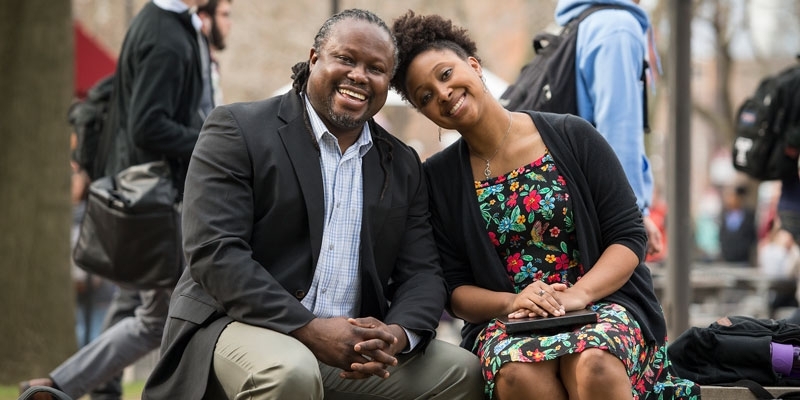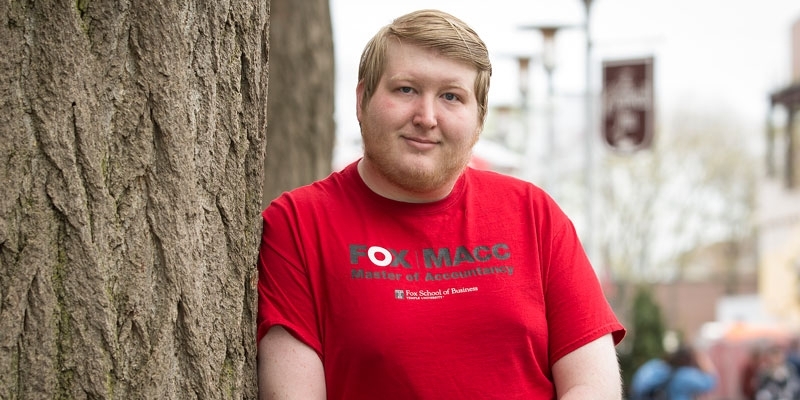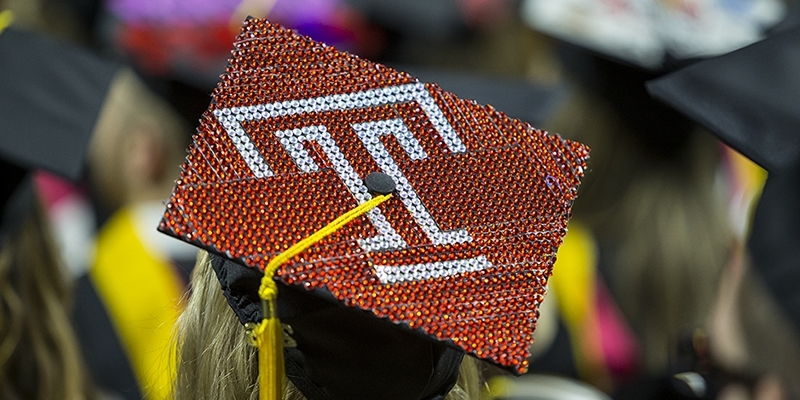Arooj Khan, Class of 2018: ‘There’s no limit’
The student speaker for the College of Engineering’s Commencement ceremony founded the Pakistani Students Association at Temple and helped to develop innovative medical devices.
While she explored her college options just a few short years ago, Arooj Khan knew a few things: She loved math and science—but she didn’t want to commit to just one field.
It was at Temple that Khan found her fit: The bioengineering program allowed Khan to simultaneously study tissue engineering, neural engineering and pre-med disciplines.
“I didn’t want to stick to one thing, so I did all three,” said Khan, a graduate in the Class of 2018.
Born in the Netherlands and raised around the world, from Amsterdam to Pakistan to Los Angeles, Khan said she considered Temple because her family moved to Philadelphia and her brother attended college here. As she prepares to graduate—and to deliver Commencement remarks to her class as the College of Engineering’s student speaker—she reflected on her undergraduate journey.
“Honestly, when I was moving to Temple, I expected nothing, I was just like, this is the school my brother went to. I’m just going to work, be an engineer, have no life,” Khan recalled. “But looking back at these four years, I’ve grown and changed so much. And the people here are amazing.”
Khan’s accomplishments in the last four years are as vast as her upbringing: Wanting to stay in touch with her Pakistani culture, she founded the Pakistani Students Association, a cultural organization that celebrates South Asian events and hosts political leaders, including the former president of Pakistan, Pervez Musharraf, on campus.
“If you can’t find an opportunity, make one. It’s endless, and you can do anything,” Khan said. “I met the former president of Pakistan through Temple, and he was president while I lived in Pakistan, so it was a huge thing for me.”
She has also been involved with the Society of Women Engineers for most of her college career and has been working with Melzi Corp., a startup launched in the Lewis Katz School of Medicine, to develop a device that can help surgeons to locate needles lost during surgery.
“We’re trying to make this needle detector that can instantly find the needle … and shorten the time” spent looking for it, reducing time in surgery.
For her senior design project, Khan also worked on developing a urinalysis device that could potentially help doctors to more accurately detect and diagnose acute kidney injury.
“Having a social impact is very important to a lot of majors, especially engineering,” Khan said. “That’s one of the reasons I chose engineering, because I could go big or go home.”
After she graduates, Khan plans to pursue a graduate degree—either a master’s program in medical device innovation or a PhD in bioengineering. She’ll also begin working as a tech consultant for a software development company in New Jersey in September.
For her fellow graduates, Khan gave some advice—a preview of what she plans to say in her address as the student speaker.
“Always look at the bigger picture, and always try to go as high as you can, because to be honest, there’s no limit,” Khan said. “You should just forget about any limiting factor and go as big as you can.”


